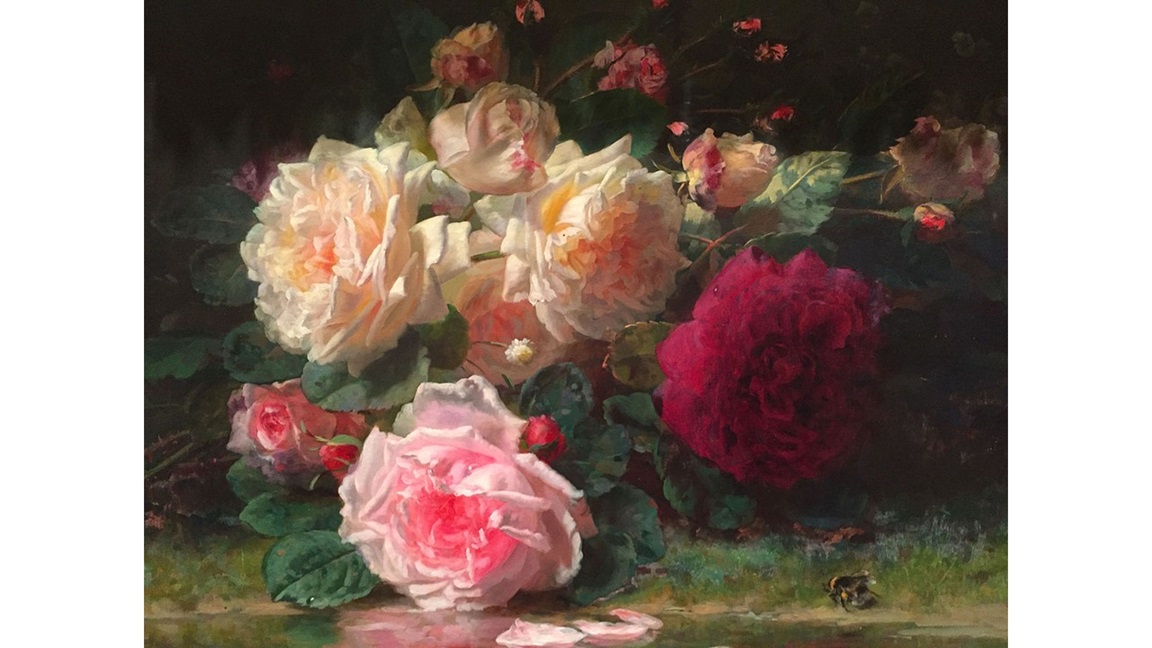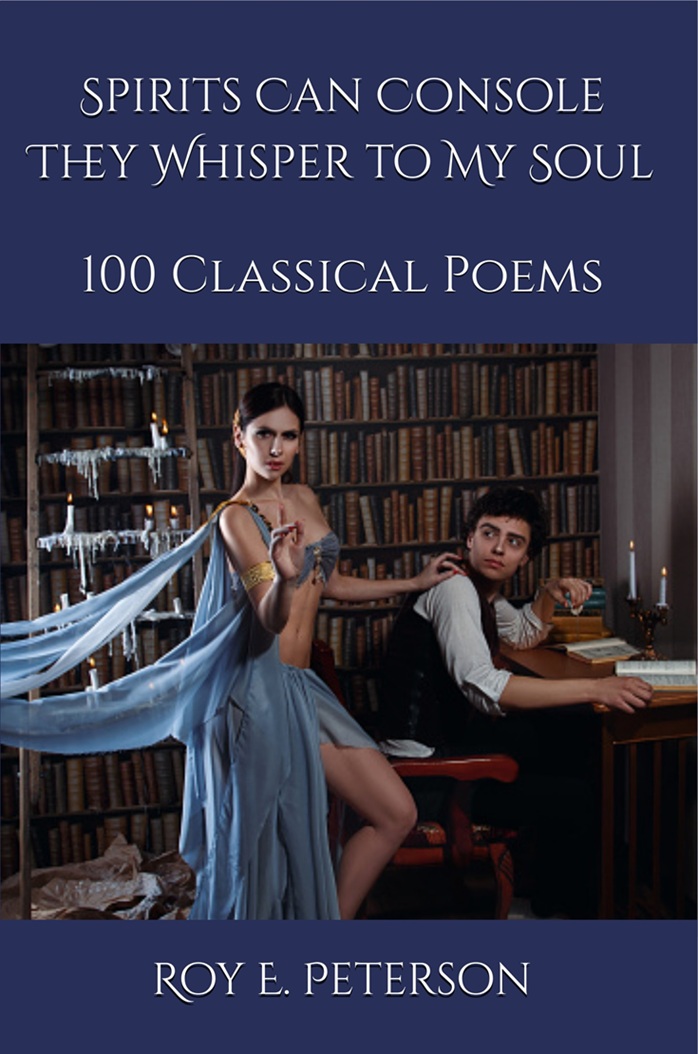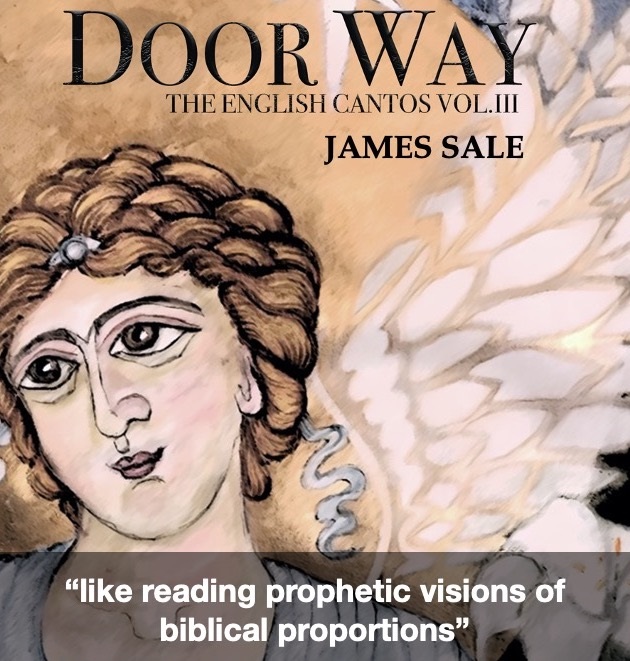My Soul awoke and yawned and stretched and pushed
And seemed desired to break its earthly bounds
Too anxious, I almost its Spirit crushed
As birth pangs silenced all but sense’s sounds.
Alive at last, it brushed away from eyes
The blinding webs that Greed and Self had spun
Released from throat the low imploring cries
For Peace that Woman’s labour never won,
It loosened tongue in praise of pleasures new
The simplest joys that register unseen –
A spinning bird, a petal heaving dew,
A wistful wave on starfish shore serene.
My Soul awoke and fought for its release
And flooded Life with Love’s voluptuous Peace.
Jan Darling is a New Zealander who has worked in Auckland, Wellington, London, Barcelona, New York and Sydney at copywriting and marketing strategy. She has spent her leisure time over sixty years writing poetry and short stories. Now retired, she lives in pastoral New South Wales with her husband Arturo.

















I’m always a fan of a good sonnet. You make beautiful use of imagery and symbolism, but I do wish that there was more assonance and euphony in your lines. It would give your verse a more musical quality. On the other hand, I enjoy how the second and third quatrain blend together. Great work!
Thank you Connor for your observations. I have to admit that I try to steer away from alliterations in the sonnet, perhaps because it has been so overused in a parallel life as a commercial writer. I take your point.
And I thought the opening line used a number of syllables that normal economy, the repeated ‘and’, and the ‘a-‘ of ‘awoke. It is as though you are padding the line out to fit in the unstressed syllabels of the metric pattern Absolute adherence to metre is not the norm in English poetry..
Sorry, If my message it garbled by arbitrary cuts as I am writing, I shall be silent. I am trying to be helpful suggesting lines of development for the poet.
Thanks Murray – the repetition of the conjunction in the first line is to emphasise effort. It was done consciously, even though I do usually prefer to adhere to strict metre.
I also wish the opening line had been more compelling. Also, the phrase “I almost its spirit crushed” is (at least for me) a bridge too far. But as for assonance, we have “starfish shore serene,” “wistful wave,” and “sense’s sounds” (although I’m not quite sure what that means). “Soul awoke” could be considered an internal rhyme. There is much to admire in this poem including some cryptically compelling word images such as “My soul awoke,” “a petal heaving dew,” and “Love’s voluptuous Peace.” Personally, I find the capitalization of nouns to be distracting unless there is some personification involved, but all in all, I found the overall effect of the poem to be quite successful. Well done.
I meant to allude to alliteration rather than assonance.
Thank you James – I appreciate your reading of the sonnet. By way of explanation, certainly not defence, I offer this comment on the second half of the first quatrain – something new is being realised and one is torn between anxiety, resistance and a fear which expresses itself by hearing the pounding of your own heart in your ears (the sense’s sound). The capitalisation seemed to me at the time of writing to stress the importance of those concepts – but perhaps it’s just preciousness. I am grateful that you spared the time to respond.
This poem has an interesting perspective, about a soul attempting to be born. Although I like yours better, here is one I wrote in 1982:
Abortion
The media installs the program,
The bureaucracy does the same.
Your Billy or Dave, Sally or Sam,
Your name is but part of the game.
The individual is less of a man,
Or woman, in this world of ours.
People in power don’t give a damn,
We are born to die in just hours.
Abortion is the fashion these days,
You can kill me before I am born.
Trying to be born in so many ways,
My patience is getting quite worn.
David – you need a loving hug and a happy dinner with friends. I hope you are more optimistic now.
Structurally, in terms of normative English sentences, your grammatical structure was a bit incondite. Press forward, get the basics down, and then polish the form that best expresses your idea, which is not a new one. Beyond that, complete your sentences and don’t leave clauses dangling in the wind. Nice try, but no cigar.
Dear C.B. I am unfamiliar with the word ‘incondite’ but I am guessing it has to do with obscurity. I’m not sure how to take your comments so I leave you with this – if the world had to wait for a new idea to inspire a poem – there would be no poetry. Hold the cigar – don’t smoke.
Jan,
Don’t worry about me. I’m just the house curmudgeon. As for “incondite,” please consult a good dictionary. In the second line “And seemed desired to break” is simply not English as I know it, or is at best awkward. On a more constructive note, in the last line “voluptuous” doesn’t seem quite right, and also disrupts the meter. How about “resplendent” instead?
Thanks for your reply CB. “And seemed desired to break” is inherited from the same period as “and seemed desirous of breaking” – c. Elizabethan I would say. If you elide the second and third syllables of ‘voluptuous’ – volupches the meter is sustained. This is by way of explanation of my construction – not a miffed defence. I appreciate your taking the time to respond. Thank you.
love it , hope to get more , cheers
Thanks Manfred…xxx
Screw all that BS technical criticism, it’s a lovely poem, expressing a beautiful thought, and I think quite beautifully conveyed, particularly toward the end.
Dan – thank you – you’re clearly a man of good taste and education.
Yes, Dan,
Let’s do away with with any expectation of normative English grammar or sentence construction. In fact, let’s completely disregard any semblance of order at all. And to further this progressive agenda, let us us make all future poetry completely asemic.
Come come, dear CB. Now you’re sounding miffed. I’m sure Dan doesn’t want to denude the beautiful English language. I am protective of it myself. I support the Society for the Protection and Correct Use of the Apostrophe. Plus the Society for the Protection and Correct Use of Past Participles. And I admit to disliking some of your countrymen’s sloppy habits with Oxford English. And I mourn the passing of understanding of the moods of verbs – I support the Correct Use of the Much Abused Subjunctive. Oxford English lost something in its journey across the Atlantic. But let us celebrate Tolerance. My apologies to James for all those conjunctions.
I liked it. Actually, I can see expectant moms placing a copy of this poem in their Lamaze kit. Regardless of the manner in which a woman gives birth, she may appreciate having her husband/partner read this to her (in between contractions, of course!).
Thanks E.V. I never thought of myself as a midwife, but I rather like it. Some nice baroque music in the background, too , please, to put our brains in the right mood.
ES UNA GRAN PERSONA CON UNA EXCELENTE IMAGINACION PARA LA LITERARTURA.
Gracias Don Juan Carlos – estoy muy agradecida. Me gusta mucho que me leas.
Jan,
I am thrilled that you are concerned with the “Much Abused Subjunctive.” One might rather refer to the much neglected subjunctive mood, and Joseph Salemi addresses that here:
http://pennreview.com/2017/07/english-is-not-esperanto/
Thank you sincerely and from the deepest recesses of my heart CB, for your referral to pennreview! “But there’s more to such complaints than simple rigidity and resistance to change. They also evince a concern for precision and nuance, for clarity of definition, and for the sheer grace of well-deployed idiom.” A splendid defence of our beautiful language. Perhaps classes in English literature and grammar (without which we are illiterate) should include reference to the Latin and Greek and Old German roots.
A lovely poem, Jan, I really enjoyed this. The line ‘The simplest joys that register unseen –’ is itself simple, but still extremely affecting. There’s a lot of skill in writing at this level – thank you.